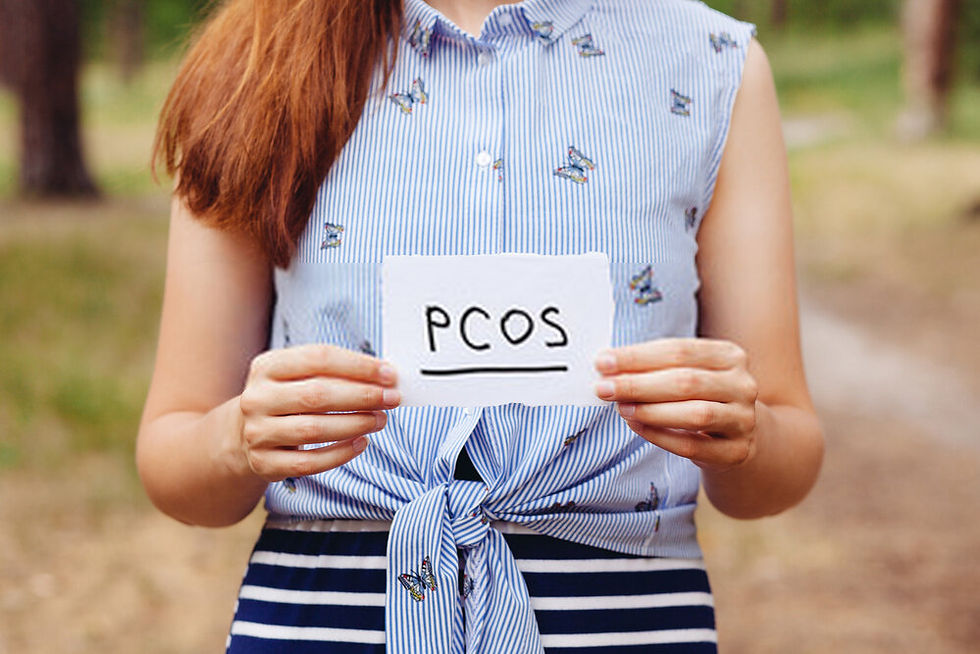
“Every day may be a fight, but never give up”. Don’t feel timid, make it your strength and face it as a challenge. Every second goes to be painful, tough and even depressing but fight back. Polycystic Ovarian Syndrome may be a condition within which a women’s level of the sex hormones estrogen and progesterone are out of balance. It ends up in the expansion of cysts in ovaries. The name itself implies polycystic which suggests multiple cysts are going to be present in ovaries which are non-cancerous. It is a pathological state that affects 1 in 10 women of childbearing age. It affects 8–13% of ladies of reproductive age. PCOS can affect the menstrual cycle, fertility, cardiac function, and appearance. Hirsutism(unwanted hair growth) is also additionally observed in women with PCOS.
You can listen to the audio version of this article here 👇
CAUSES
The precise reason for PCOS isn’t known. Common causes of PCOS are:
Genetics: If PCOS runs in your family then you’re at the subsequent risk to amass it.
High level of Androgens: Above the normal levels in women can prevent the ovaries from releasing an egg during each cycle, and which may cause unwanted hair growth and acne problems.
High levels of Insulin: Insulin may be a hormone that controls how the food you eat is modified into energy. Insulin resistance is when the body’s cell doesn’t respond normally to Insulin. As a result, Insulin blood levels become above the conventional range. Many girls with PCOS have insulin- resistance, especially ladies who are obese, who have bad eating habits and who don’t get enough exercise. Insulin resistance may end up in type 2 diabetes.
Risk Factors
Women with PCOS can develop these pathological conditions:
Type 2 diabetes: Its life- long condition that causes a person’s glucose level to become too high.
Depression: PCOS can affect once confidence and self-esteem generally feel self-conscious and they develop an inferiority complex in themselves about their appearances which further leads to stress and anxiety.
High cholesterol and High blood pressure: It may end up in heart disease and stroke.
Cancer: Women who have had absent or irregular periods( fewer than 3 or 4 periods a year) are more vulnerable to develop endometrial carcinoma.
Infertility: Women with PCOS have the next rate of miscarriage and premature delivery. They will need extra monitoring during pregnancy.
SYMPTOMS
Following are the symptoms of PCOS:
Irregular menstrual cycle: Women with PCOS may miss periods or fewer periods( fewer than 8 in an exceedingly year) or, periods may come every 21 days or more often.
Hirsutism: Unwanted hair growth occurs on the face, chin or parts of the body where men usually have hair. Hirsutism affects up to 70% of girls with PCOS.
Acne: Acne on the face, chest and upper back is another common symptom seen in women with PCOS.
Thinning of hair: Hair starts growing thin, which ends in male pattern baldness.
Darkening of skin: Skin starts becoming dark particularly along neck region, within the groin, and underneath breasts.
DIAGNOSIS AND TEST
Physical Exam: There’s no test to definitively diagnose PCOS. But a physical exam could also be done by a doctor which has signs of excess hair growth, insulin resistance and acne.
Pelvic Exam: Your doctor visually and manually inspects your reproductive organs for masses, growths the other reasonably abnormalities.
Blood Tests: The test which checks hormonal imbalance is named as PCOD profile. Your doctor may additionally ask you to go for tests like glucose fasting, cholesterol and triglyceride levels.
An Ultrasound: Your doctor inspects the looks of your ovaries and thus the lining of the uterus.
TREATMENT AND MEDICATIONS
PCOS may be treated but it can’t be cured. The treatment varies from women to women counting on specific symptoms. Tips for controlling symptoms may include:
Eat a healthy diet and exercise: A healthy diet and regular exercise are highly recommended for all women with PCOS as this may help to manage your cycles and lower your glucose levels.
Contraception pills: Women who don’t want to become pregnant could even be prescribed contraception pills as this could help to treat acne, regulate the cycle, and lower levels of male hormones within the body. But remember that a healthy diet and exercise must be preferred over medicine.
Surgery: This can be often carried so as to destroy a part of the ovary. It’s a brief-term solution that promotes ovulation and it’s recommended to those having severe symptoms of PCOS.
CONCLUSION
So, we conclude that PCOS can not be cured. But early diagnosis and treatment help helping-run to stop complications like infertility, obesity, diabetes and heart condition. From my point of view, PCOS means:
P- PRETTY
C- COURAGEOUS
O- OBVIOUSLY
S- SMART
Thanks a lot for reading till the end. I hope you found this post useful!







Comentários